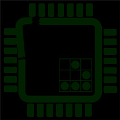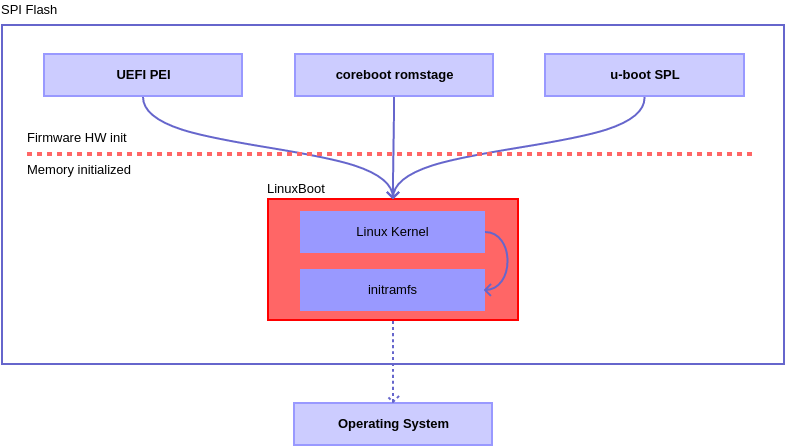SystemBoot is a distribution for LinuxBoot to create a system firmware + bootloader. It is based on u-root. The provided programs are:
* netboot: a network boot client that uses DHCP and HTTP to get a boot program based on Linux, and uses kexec to run it
* localboot: a tool that finds bootable kernel configurations on the local disks and boots them
* uinit: a wrapper around netboot and localboot that just mimicks a BIOS/UEFI BDS behaviour, by looping between network booting and local booting. The name uinit is necessary to be picked up as boot program by u-root.
This work is similar to the pxeboot and boot commands that are already part of u-root, but approach and implementation are slightly different. Thanks to Chris Koch and Jean-Marie Verdun for pioneering in this area. This project started as a personal experiment under github.com/insomniacslk/systemboot but it is now an effort of a broader community and graduated to a real project for system firmwares.[…]
https://github.com/systemboot/systemboot


